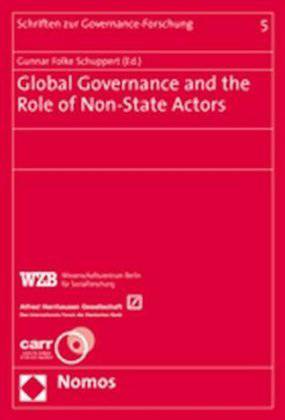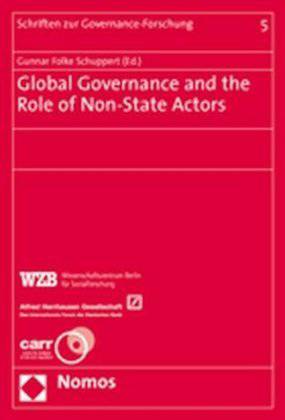
- Afhalen na 1 uur in een winkel met voorraad
- Gratis thuislevering in België vanaf € 30
- Ruim aanbod met 7 miljoen producten
- Afhalen na 1 uur in een winkel met voorraad
- Gratis thuislevering in België vanaf € 30
- Ruim aanbod met 7 miljoen producten
Zoeken
Global Governance and the Role of Non-State Actors
€ 54,95
+ 109 punten
Omschrijving
This book grew out of a conference organised by the Social Science Research Centre Berlin (WZB), the Alfred Herrhausen Society - The International Forum of the Deutsche Bank - and the Centre for the Analysis of Risk and Regulation (CARR) at the London School of Economics and Political Science (LSE) in November 2004 in London.
Changes in statehood are one of the main indicators of a shift in the focus of governance onto the global level. This is manifested most clearly in the emergence and growing importance of actors that are no longer tied to national or state contexts in the traditional way, as with national parliaments, government ministries or administrative bodies. The age of Global Governance is an age of international actors, such as the WTO, and of non-state actors, such as non-governmental organisations (NGOs) and transnational corporations (TNCs).
The aim of the conference was to take a closer look at these non-state actors, the scope of their activities, the way they operate, and the extent to which they are perhaps more appropriately classified as "governance actors", given their function as regulators and standard setters, tasks more traditionally associated with the state.
Changes in statehood are one of the main indicators of a shift in the focus of governance onto the global level. This is manifested most clearly in the emergence and growing importance of actors that are no longer tied to national or state contexts in the traditional way, as with national parliaments, government ministries or administrative bodies. The age of Global Governance is an age of international actors, such as the WTO, and of non-state actors, such as non-governmental organisations (NGOs) and transnational corporations (TNCs).
The aim of the conference was to take a closer look at these non-state actors, the scope of their activities, the way they operate, and the extent to which they are perhaps more appropriately classified as "governance actors", given their function as regulators and standard setters, tasks more traditionally associated with the state.
Specificaties
Betrokkenen
- Uitgeverij:
Inhoud
- Aantal bladzijden:
- 273
- Taal:
- Engels
- Reeks:
- Reeksnummer:
- nr. 5
Eigenschappen
- Productcode (EAN):
- 9783832917371
- Uitvoering:
- Paperback
- Afmetingen:
- 227
- Gewicht:
- 402 g

Alleen bij Standaard Boekhandel
+ 109 punten op je klantenkaart van Standaard Boekhandel
Beoordelingen
We publiceren alleen reviews die voldoen aan de voorwaarden voor reviews. Bekijk onze voorwaarden voor reviews.










